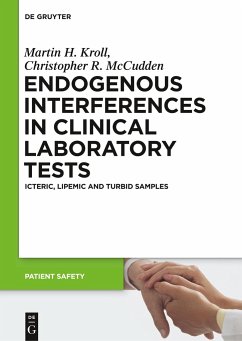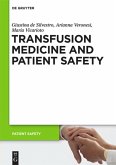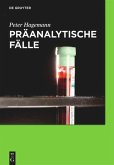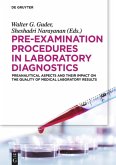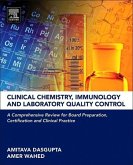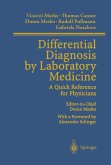The goal of clinical laboratories is to produce accurate information for clinical decision making in medicine. More than half of the medical decisions made depend on clinical laboratory tests.
Patient safety represents an important and critical problem for laboratories. They need to assure that the information they deliver to physicians is accurate, and therefore safe for clinicians to use. Endogenous compounds can interfere with laboratory tests, decreasing accuracy and threatening patient safety. Elevated bilirubin (bilirubinemia) and elevated lipids (lipemia) are common conditions that cause significant interferences with laboratory results. Clinicians depend on laboratories to detect these endogenous interferences. Laboratories must have a means to detect these endogenous interferences, make decisions about reporting results, and evaluate their impact.
Most clinical pathology books provide only an abbreviated introduction to the subject, or provide a long list of references, without the necessary foundation for evaluating their significance. Package inserts typically provide scant information. This book provides the empirical and theoretical foundation for these interferences, describes the clinical settings where they occur, and explains their evaluation and detection, allowing the laboratory to interpret the available data on interferences and make the appropriate decision to effectively report test results while protecting patient safety.
Patient safety represents an important and critical problem for laboratories. They need to assure that the information they deliver to physicians is accurate, and therefore safe for clinicians to use. Endogenous compounds can interfere with laboratory tests, decreasing accuracy and threatening patient safety. Elevated bilirubin (bilirubinemia) and elevated lipids (lipemia) are common conditions that cause significant interferences with laboratory results. Clinicians depend on laboratories to detect these endogenous interferences. Laboratories must have a means to detect these endogenous interferences, make decisions about reporting results, and evaluate their impact.
Most clinical pathology books provide only an abbreviated introduction to the subject, or provide a long list of references, without the necessary foundation for evaluating their significance. Package inserts typically provide scant information. This book provides the empirical and theoretical foundation for these interferences, describes the clinical settings where they occur, and explains their evaluation and detection, allowing the laboratory to interpret the available data on interferences and make the appropriate decision to effectively report test results while protecting patient safety.

